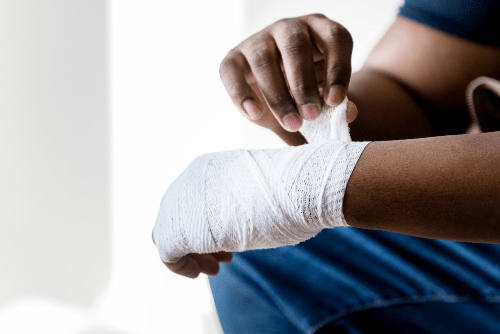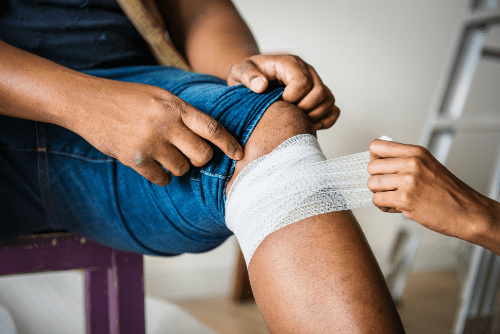
Can I still get workers comp if I quit my job after getting hurt?
Let’s take a look at a hypothetical situation. Let’s say you’re having a bad week. You’re carrying your piping hot coffee through the warehouse when you trip over some cables that were being improperly stored. You fall, hot coffee burns your hands, ruins your shirt and your morning and you landed pretty hard. In a huff, you pick yourself up off the ground, you mutter a few choice words and decide this is the last straw. You quit. A few days later, you’re still hurting. You go to the doctor who says you’ve got a herniated disc and second-degree burns. You’re going to need physical therapy and pain management, which means you’ll be out of work for a while.
You might be wondering, “Can I still get workers compensation if I quit my job?”.
The short answer is yes you can still qualify…but if you haven’t quit, don’t.
When you’re injured on the job and have a worker’s compensation claim, your claim really has two aspects, the medical portion, and the indemnity portion.
- The medical portion is where the employer or their insurance is required to provide you the necessary medical care to provide either cure or relief, therefore, lessening the length of time that you’re unable to work.
- The indemnity portion is where the employer or their insurance is required to pay you compensation for the time you’re unable to work.
While the two portions are interconnected in several ways, they are also largely separate and distinct. So, it’s certainly possible for an employee to quit their job and still receive workers’ compensation benefits, but the benefits might become limited if you quit your job.
Let’s revisit the example above:
Let’s say, the BWC or your employer agrees to pay for your therapy and will also pay you 2/3 of your wages while you’re out of work, but your employer tells you that if you want to continue to get health insurance while you’re out on workers comp, you need to pay for it at the COBRA rate, which is very expensive. So, you decide you’re not totally disabled, and that there are some things you can still do. You take a part-time job working for your friend. The job pays less than your old one, but it’s less physical, and it provides health insurance.
What happens to my open worker’s work comp claim if I get a new job?
Well, the fact that you left your job and took a new one should have no effect on your entitlement to medical care. Your new job isn’t aggravating your back, and it’s not preventing you from attending your physical therapy sessions. So, the worker’s comp adjuster should have no problem continuing to pay for medical care.
The other aspect of the claim, however, will be impacted. Now that you’re receiving wages, you certainly will see a reduction in the indemnity benefits you’re receiving. Those weekly checks that were $400 a week might drop to $150 a week now since you’re receiving wages from a new job. You may even see the checks stop completely if, for example, your old employer claims that they would have offered you a temporary, light-duty job at your pre-accident wage rate if you hadn’t quit.
Other things to consider.
Quitting your job could also hurt you when it comes time to settle your claim. The BWC prefers that a settlement agreement includes having the injured employee resign from their job. We take a strong stand for our clients in this regard and when clients don’t want to resign from their jobs, we try extremely hard to take that option off the table.
Another thing to consider is that the BWC or your employer tends to drag their feet on approving medical care, especially when they’re not paying someone weekly checks. When they know they are going to be paying a claimant until they recover, they have more motivation to give the medical care that will get you back to work.
Given all the factors that go into a worker’s compensation claim, it’s wise to consult with a worker’s comp attorney before taking steps that might impact your claim. Workers comp is all we do; give us a call.




